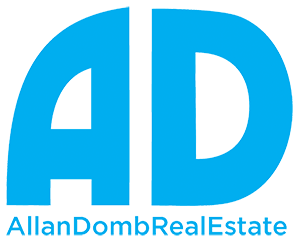Whether you’re excited about finding a new home or dreading it, it’s common to find yourself feeling overwhelmed. You might wonder if you’re ready for true homeownership and everything that comes with it. Here, we’ll let you in on a few first-time homeowner mistakes to help you avoid common pitfalls.
1. Buying More House Than You Can Afford
Shopping for houses can be super exciting. Actually walking through houses gets the brain working and visualizing, and you start making mental notes and comparing each house you’ve seen. When you fall in love with a home that’s even just a little over budget, that’s when the rationalizations start forming, and you start telling yourself all the ways you can afford it. In reality, though, you’re overextending yourself and your budget, which is never wise. Buying a house that costs more than you can afford puts you on the fast track to financial hardship and, let’s face it, is no way to live. Living above your means gets old quickly when you can’t find the money for your other bills. One way to avoid this problem is to consider a condo in Philadelphia. In and around Center City, you’ll find a bunch of desirable neighborhoods that suit your lifestyle, whether you’re looking for a view of the river or just convenient proximity to grocery stores and transportation.
2. Rushing the Decision and Fixating on the House Rather Than the Neighborhood
When you get down to the nitty-gritty of your purchase and you’re neck-deep in paperwork, things will start to seem serious. Rushing the process and not putting solid thought into things like down payments, closing costs, and credit report blips can cause trouble down the road. You’d be amazed at how many mistakes end up on credit reports that can affect your ability to get a loan as well as a good interest rate. Fixing those issues can take a little time, and diving right into a purchase can mean long-lasting financial problems.
Spending some time researching neighborhoods instead of specific homes will also benefit you in the long run. Choosing a home for what it offers in itself rather than finding a great home in a neighborhood that fits your lifestyle is an incredibly common first-time homeowner mistake. It’s an easy way to experience major buyer’s remorse. Sure, you’ll live inside the walls of your new place, but you’ll also be living in the neighborhood. It’s always smart to choose a home that allows you a comfortable commute and proximity to amenities and activities that are important to you and your family. You can upgrade a kitchen or bathroom, but you can’t as easily upgrade your neighborhood.
Finding a beautiful condo in a part of town that fits your needs is worth considering.
- Rittenhouse Square has some of the area’s best dining and shopping, for example.
- Avenue of the Arts is rich in culture with its many theaters and performing arts houses.
- The stately Art Museum and Fairmount Park area is incredibly vibrant and is always bustling with activity.
- If you’re looking for something more historic, check out Old City/Society Hill, where you’ll find some of the oldest and historically significant landmarks in the entire country.
- Washington Square shares a similar look and feel. Penn’s Landing is in the waterfront neighborhood between Columbus Blvd and the Delaware River, where there’s always something cool to do or see.
3. Waiting for the Unicorn (the Perfect House)
We all know in our heart of hearts that “perfection” doesn’t actually exist. However, it’s easy to hold out hope for that perfect place. Narrowing your choices too much rarely brings you closer to that needle in the real estate haystack, but it often causes you to lose out on some great houses or overpay for one. No home is going to check all the boxes. It’s always best to decide which things you aren’t willing to budge on and which features you can live with or are willing to upgrade later.
4. Miscalculating the Real Cost of Owning a House
Paying for a house goes way beyond your monthly mortgage payment. If that potentially new monthly bill makes your eyes bug out, remember to also think about the other associated costs, such as property taxes, home owners insurance, hazard insurance, sudden repairs, maintenance, and utilities.
Condos, on the other hand, tend to cost less than comparable houses, and only come with some of the financial incidentals. Maintenance is less of an issue because it is often covered by condominium fees. Also, condo owners tend to have shorter commutes to work than homeowners because they’re closer to downtown. Renting a condo in Philadelphia is a great way to get a lot of the benefits of homeownership but without a lot of the costs and hassle.
Finding a new home is stressful enough without having the added pressures associated with feeling out of your element. Use these common mistakes to help you make informed decisions when you are searching for your next home.
